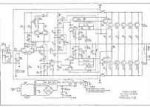- Joined
- Jan 2, 2006
- Messages
- 28,173
- Reaction score
- 14,269
- Location
- Boca
- Gender
- Male
- Political Leaning
- Independent
QE was unprecedented. The Fed purchased large amounts of Govt bonds to drive up Bond prices and conversely to drive down yields and short term interest rates.
You have it completely backwards, which is a testament of depth. QE is a policy where asset purchases are well in excess of the level necessary to bring interest rates to the zero-bound. The Fed raises and lowers interest rates using a channel/corridoor approach, i.e. interest on excess reserves, reverse repo, and the discount rate.
If the FED planned on making QE permanent, then yes, they're essentially monetizing the debt. All interest earned on Fed liabilities is remitted back to the Treasury in perpetuity, which means it cost nothing for the Fed Govt to borrow and spend
The Fed can maintain a large balance sheet for as long as it needs without impacting interest rate targets. Again, your entire post is based on a severe knowledge deficiency, and therefore is simply dishonest and misleading.


